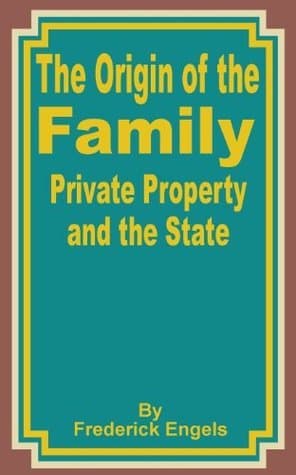
Book Review Summary: The Origin of the Family, Private Property and the State
Introduction
"The Origin of the Family, Private Property and the State" by Friedrich Engels is a seminal work that challenges traditional views on the evolution of human society. Engels, a lifelong colleague of Karl Marx, delves into the history of the family, private property, and the state, offering a materialist perspective that sheds light on the origins of these institutions. In this article, we will explore Engels' arguments, analyze common opinions among readers, and provide reasons for both recommending and not recommending this book.
About Friedrich Engels
Friedrich Engels was born into a wealthy family in Germany in 1820. He became appalled by the poverty he witnessed during his time managing his father's business in Manchester, England. Engels' socialist views were shaped by his observations of working-class conditions, leading him to co-write "The Communist Manifesto" with Karl Marx. Engels' extensive knowledge of history and his ability to apply historical materialism to social structures make him a significant figure in the field of Marxist thought.
Analysis of Views
- Historical Materialism: Engels' work is grounded in historical materialism, an approach that emphasizes the economic and social conditions that shape human societies. He argues that the development of private property and the state are intertwined with the rise of class antagonism and patriarchal structures.
- Parallel between Gender Roles and Social Structures: Engels draws parallels between the domination of men in the household and the antagonism between social classes. He shows how the monogamous family structure emerged as a result of private property acquisition and how it reinforced male dominance over women.
- Importance of Idealistic Factors: Some readers criticize Engels for downplaying the importance of idealistic factors in history. They argue that his focus on materialistic and empirical conditions may lead to an incomplete understanding of historical events.
- Value of Historical Materialism Method: Engels' historical materialist method is praised by some readers for its ability to provide insights into the origins of family, private property, and the state. They appreciate his analysis of anthropological data and his break from traditional scholarship on these subjects.
- Outdated Anthropological Data: Readers point out that Engels worked with limited and biased anthropological data, which can make some of his arguments seem outdated or flawed. However, they acknowledge the value of his historical materialist approach and its influence on subsequent Marxist thought.
- Racist and Patriarchal Perspectives: Some readers criticize Engels for perpetuating racist and patriarchal perspectives in his discussions on "savagery" and "barbarism." They argue that his analysis of non-western societies is problematic and reinforces harmful stereotypes.
- Limited Focus on Gender and Sexuality: Some readers feel that Engels' analysis of gender roles and sexuality is lacking. They believe that he fails to interrogate these concepts fully, leaving room for further exploration by feminist Marxists.
- Value for Understanding Capitalism: Despite its limitations, many readers find "The Origin of the Family, Private Property and the State" valuable for understanding the relationship between capitalism and patriarchal structures. They appreciate Engels' insights into how these institutions contribute to exploitation and oppression.
Reasons for Recommendation
- Historical Materialist Perspective: Engels' historical materialist approach offers a fresh perspective on the origins of family, private property, and the state, challenging traditional views and shedding light on the economic and social factors that shape human societies.
- Insights into Capitalism and Patriarchy: The book provides valuable insights into how capitalism reinforces patriarchal structures, highlighting the ways in which these institutions contribute to exploitation and oppression.
- Influence on Marxist Thought: Engels' work has had a significant impact on Marxist thought, influencing subsequent generations of scholars and activists. It remains a foundational text for those interested in understanding the roots of modern social structures.
Reasons for Not Recommendation
- Outdated Anthropological Data: Some readers find Engels' reliance on outdated anthropological data problematic, as it limits the relevance and applicability of his arguments to contemporary societies.
- Racist and Patriarchal Perspectives: Engels' discussions on "savagery" and "barbarism" have been criticized for perpetuating harmful stereotypes about non-western societies. This may be a significant barrier for readers seeking a more inclusive understanding of human history.
- Limited Focus on Gender and Sexuality: Engels' lack of exploration into gender roles and sexuality may leave some readers feeling unsatisfied, especially those interested in feminist perspectives on these topics.
Conclusion
"The Origin of the Family, Private Property and the State" by Friedrich Engels is a seminal work that challenges traditional views on human society's evolution. While it offers valuable insights into the origins of family, private property, and the state, it also has limitations due to outdated anthropological data and problematic perspectives on gender roles and sexuality. Despite these criticisms, the book remains an important foundational text for those interested in understanding the roots of modern social structures from a historical materialist perspective.